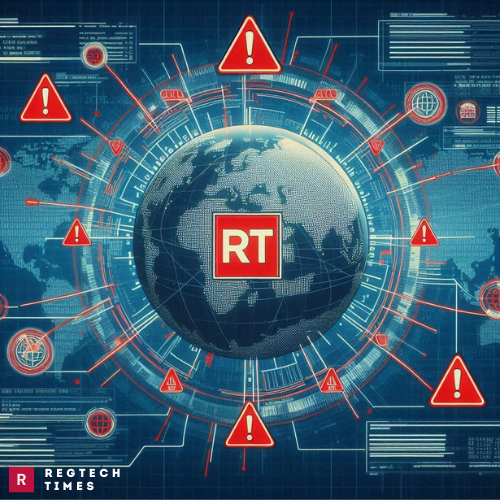In a significant escalation of diplomatic tensions, the U.S. State Department has accused RT (formerly Russia Today), a prominent Russian media outlet, of engaging in covert intelligence operations. Secretary of State Antony Blinken has revealed that RT is not merely a platform for Russian state propaganda but is also deeply involved in a range of covert activities designed to influence global public opinion and support Russia’s military endeavors, particularly in Ukraine.
According to Blinken, RT has been repurposed by the Kremlin to act as an arm of its intelligence apparatus. The Russian media outlet is alleged to be involved in sophisticated cyberintelligence operations and covert influence campaigns aimed at undermining democratic institutions worldwide. This assertion marks a significant shift in how RT is perceived in international relations, moving beyond its role as a purveyor of state-backed narratives to that of a key player in a broader Russian disinformation strategy.
U.S. Sanctions and Diplomatic Measures Against Russian Media
The U.S. government’s new sanctions against RT’s parent companies, Rossiya Segodnya and TV-Novosti, signal a more aggressive stance against what it views as subversive activities by the Russian media. These sanctions aim to cripple the financial underpinnings of RT’s operations and restrict its ability to fund its covert influence campaigns. Blinken emphasized that these measures are targeted not at the content of RT’s reporting but at its covert operations designed to sway public opinion and destabilize democracies.
In addition to these sanctions, the U.S. has also designated RT as a “foreign mission,” a classification that reflects its view of the outlet as an instrument of Russian state interests rather than a legitimate news organization. This move aligns with previous actions taken by the Treasury Department, which imposed sanctions on 10 top RT executives.
Global Influence and Covert Activities by Russian Media
RT’s operations have reportedly expanded beyond traditional media dissemination. Blinken disclosed that RT is now actively involved in cyberintelligence, having embedded entities within the Russian media company with cyber-operational capabilities linked to Russian intelligence services. Furthermore, RT has allegedly been involved in crowdfunding efforts to support the Russian military, including procuring weaponry such as sniper rifles and drones.
New UK Sanctions Target Russian Oil Tankers to Disrupt War Funding
The State Department’s allegations also include claims that RT is running sophisticated disinformation campaigns through front companies and unbranded content. These tactics are said to involve recruiting and paying social media personalities to spread pro-Kremlin narratives covertly. The recent indictment of two RT employees for laundering nearly $10 million through shell companies highlights the depth of RT’s alleged involvement in these covert operations.
Diplomatic Push and Global Reactions to Russian Media
Globally, RT has reportedly intensified its activities in regions like Latin America, Africa, and the Middle East, where it has used a network of front companies to hide its true intentions. For instance, RT is accused of running a social media platform in Africa named African Stream, which, despite its purported mission to amplify African voices, is claimed to serve as a vehicle for Kremlin propaganda. In Germany, RT is said to have been involved in running an English-language outlet called Red, which promoted pro-Palestinian protests while concealing its Russian connections.
The U.S. government, along with allies like the United Kingdom and Canada, is urging other nations to recognize RT’s activities as part of a broader intelligence operation. This diplomatic push is intended to build a unified front against what is perceived as a concerted effort by Russia to undermine democratic institutions and sow discord through information warfare.
Fiona Hill, a former senior director for European and Russian affairs on the National Security Council, highlighted the gravity of the situation, noting that actions against RT represent a crucial part of the broader struggle against Russian media disinformation. Hill emphasized that balancing freedom of speech with national security concerns about subversion is a significant challenge of our time.
As the U.S. continues to confront Russia’s influence operations, the case against RT serves as a reminder of the evolving nature of modern warfare, where information and intelligence tactics play a pivotal role in shaping global geopolitical dynamics. The scrutiny of RT’s activities and the accompanying sanctions reflect a broader effort by Western nations to counteract Russian media efforts to destabilize democracies and promote its own strategic interests.


